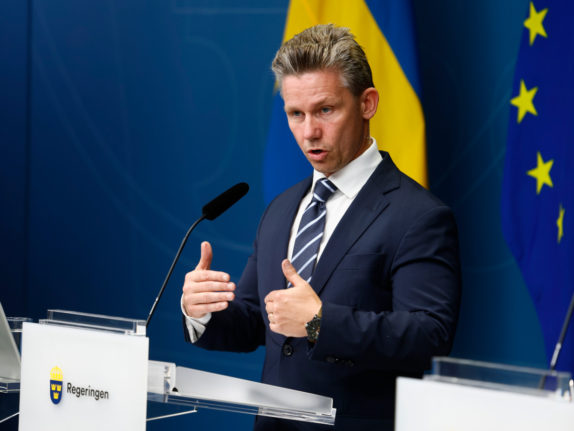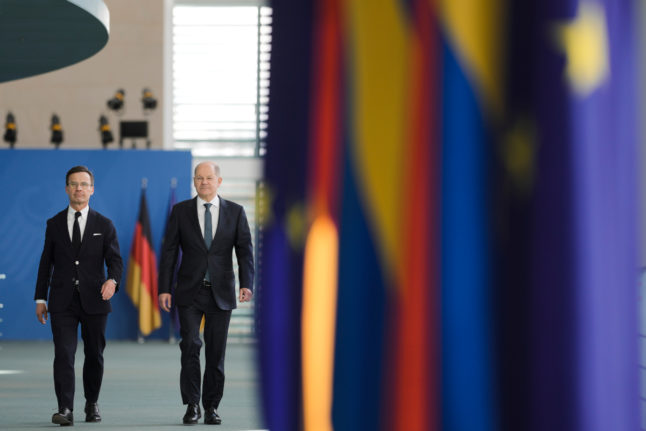Speaking at press conference, Defence Minister Pål Jonson said the military aid package, Sweden’s 13th to Ukraine, would include ammunition and spare parts valued at around 3.4 billion kronor ($313 million).
The ammo and parts would be for CV-90 infantry fighting vehicles (IFV), Archer artillery systems and Leopard 2 tanks.
It will also include mine clearing equipment and ammunition for air-defence systems – which Jonson said were crucial to prevent Russia from achieving air supremacy in Ukraine.
Sweden announced in January that it would be sending 50 of its armoured combat vehicles to Ukraine, and pledged to send its mobile Archer artillery system and NLAW shoulder-launched anti-tank missiles.
The following month it said it was also sending “around 10” Leopard 2 tanks along with the IRIS-T and HAWK air-defence missile systems.
“During the spring and winter we sent large materiel packages, that is to say a number of systems. Now we are making sure that the Ukrainians in the long term are also able to use these to reach successes on the battlefield,” Jonson told reporters.
He said the government aimed to have parliament vote on the package Thursday, which would enable the government to move forward on Friday.
Shortly after the start of Russia’s invasion in February 2022, Sweden broke with its doctrine of not delivering weapons to countries at war, pledging thousands of AT4 anti-tank weapons.
The first 12 military aid packages have been valued at around 17 billion kronor ($1.6 billion) in total.
The Scandinavian country has also donated around 5.2 billion kronor in humanitarian and civilian aid.



 Please whitelist us to continue reading.
Please whitelist us to continue reading.
Member comments